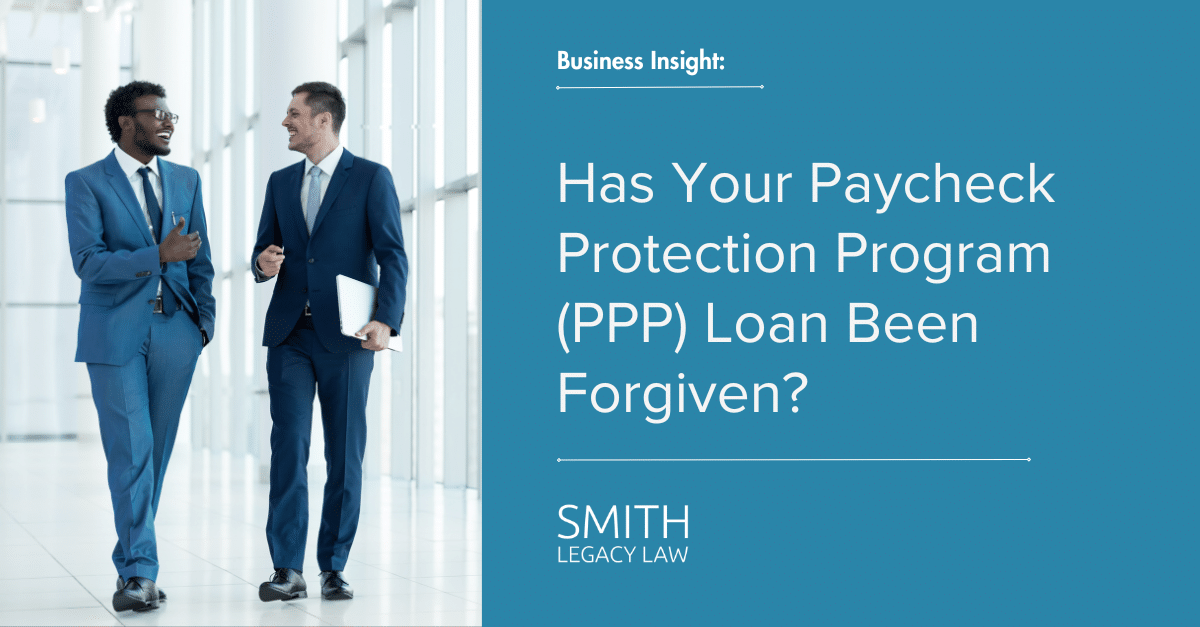An important COVID-related economic measure enacted in 2020 was the Paycheck Protection Program (PPP). Two rounds of loans were offered to businesses to help them maintain their workforce during COVID. The program ended on May 31, 2021, but existing borrowers are still eligible to have their PPP loan forgiven. If you received one or both loans, now is the time to apply if you haven’t already.
What Is the Paycheck Protection Program?
The PPP was created on March 27, 2020, as part of the Coronavirus Aid, Relief, and Economic Security (CARES) Act to help small businesses keep employees on payroll. Eligible employers could apply for a PPP loan from a bank or other financial institution but the Small Business Administration (SBA) guaranteed them. There were two rounds of loans, which offered a 1% fixed interest rate and required no collateral or application fees. Most importantly, the loan could be forgiven provided the money was used for certain types of expenses.
When Does a PPP Loan Qualify for Forgiveness?
To obtain full loan forgiveness, you must have maintained employee and compensation levels during the covered period, which is 8 to 24 weeks after receiving the loan. Next, the money must have been used to pay eligible expenses with at least 60% of it spent on payroll costs. Note that if you do not meet these criteria, you may still qualify for partial forgiveness.
How Do You Apply for Loan Forgiveness?
The lender that provided your loan should have the application for loan forgiveness or you may be able to use the SBA portal. If you had a first-round loan under $150,000, you simply sign a form certifying that you complied with the terms of the PPP. No additional documentation is needed. However, if you obtained a second-round loan under $150,000, you must show a drop of at least 25% in annual gross receipts or for any quarter of 2020, compared with the same quarter in 2019.
If you received more than $150,000, you must submit documentation including payroll and financial reports, bank statements, tax returns, unemployment insurance filings, payment receipts, and other relevant information proving that you maintained your employee and compensation levels and spent the loan money for eligible expenses.
Note that you should keep your financial records for at least 3 years in case of an audit.
When Should You Apply for Loan Forgiveness?
You can apply for PPP loan forgiveness up until the date your loan matures: Two years for loans originated before June 5, 2020, and five years for loans issued after that date.
If you fail to apply within 10 months after the last day of the covered period, then you will have to begin paying back your loan. You should not let this happen. Apply for forgiveness if you qualify and save your business substantial money.
Our attorneys and network of advisors can assist you with PPP loan forgiveness and other economic-relief programs as well as help you plan for the future success of your business. Contact us today for a consultation.
